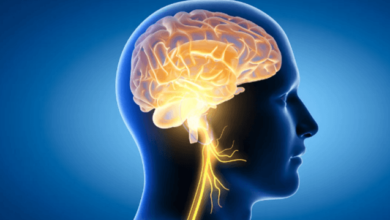What Is Broken Heart Syndrome?

Broken heart syndrome, often brought on by stressful situations and extreme emotions, is usually temporary. The condition affects just a part of the heart, briefly interrupting the way it pumps blood. Get in touch with a cardiologist for appropriate advice on treating the condition.
Broken heart syndrome is a sudden weakness in heart muscles that is usually experienced after a sudden physical or emotional stressful event. Also known as takotsubo or stress cardiomyopathy, this short-term condition only affects a part of the heart, briefly disrupting its blood supply and ability to pump. People with broken heart syndrome may experience sudden chest pain and/or shortness of breath.
If you are experiencing similar issues, then consult with one of the best cardiologists in Mumbai at Apollo Hospital Navi Mumbai. Also, read ahead to know more about the symptoms, causes, diagnosis and treatment of broken heart syndrome.
Symptoms of Broken Heart Syndrome
The following are the symptoms of broken heart syndrome:
● Fainting (syncope)
● Heart palpitations
● Irregular heartbeats (arrhythmias)
● Low blood pressure (hypotension)
● Sudden, severe chest pain (angina)
● Shortness of breath
● Weakening of the left ventricle of your heart
Since broken heart syndrome has symptoms similar to those of a heart attack, many people may think they are experiencing the latter. But, you don’t experience blocked coronary arteries and permanent heart damage in case of broken heart syndrome.
Notably, stress cardiomyopathy occurs in about 2% of the people who visit a doctor for a suspected heart attack. Also, the condition is generally observed in people assigned female at birth (AFAB), who make up 89% of reported cases.
Broken Heart Syndrome Causes
Researchers believe that a stressful event, such as a divorce, car accident or job loss can cause broken heart syndrome. They think that stress hormones that are released in the blood as a reaction to physical or emotional stress, interfere with the heart’s function.
Here are some examples of sudden emotional stressors that can cause takotsubo cardiomyopathy:
● Armed robbery
● Death of a loved one
● Extreme anger
● Good news like winning the lottery
● Huge monetary loss
● Intense fear of public speaking
● Surprise parties
● Traumatic events, such as accidents or earthquakes
Let’s have a look at some of the examples of sudden physical stressors:
● Severe pain
● Exhausting physical event
● Health issues like asthma attacks, stroke, low blood sugar (hypoglycemia), a large amount of blood loss or surgery
Besides, the chances of developing broken heart syndrome increases for people who are:
● AFAB (Assigned Female at Birth)
● Older than 50 years
● Having a history of psychiatric problems (such as anxiety and depression) or neurological disorders (like seizures or a stroke)
Diagnosis of Broken Heart Syndrome
A seasoned heart specialist like one of the best cardiologists in Mumbai at Apollo Hospital Navi Mumbai will review your medical history and conduct a physical exam. Also, he/she may order one or some of the following tests:
● Blood test to check for a specific enzyme from damaged heart muscle cells
● Coronary angiography to help rule out a heart attack
● Chest X-ray
● EKG (electrocardiogram)
● Echocardiography
● Heart MRI (magnetic resonance imaging)
● Ventriculogram (X-rays that show the size and pumping efficiency of the left ventricle)
Broken Heart Syndrome Treatment
While there’s no cure for broken heart syndrome, most of the people make a full recovery after taking medicines like:
● Aspirin to improve circulation and prevent blood clots
● ACE (angiotensin-converting enzyme) inhibitors or ARBs (angiotensin receptor blockers) to lower blood pressure and combat inflammation
● Beta-blockers to slow down the heart rate
● Diuretics to decrease fluid buildup
In rare cases where your heart needs help pumping, you may require an intra-aortic balloon pump or left ventricular assist device.
Prevention of Broken Heart Syndrome
There are no tips to prevent broken heart syndrome, but learning stress management, relaxation and problem-solving techniques can help limit physical and emotional stress. You can practise yoga, meditation, journaling or mindfulness. Also, lighting scented candles, taking a warm bath, and long, deep breaths and slowly exhaling can help relieve stress.
In addition, adopting the below-mentioned healthy habits can help you manage physical or emotional stress:
● Eat nutritious foods
● Exercise regularly
● Get a good night’s sleep
● Spend time with others
● Avoid tobacco, recreational drugs and alcohol
Conclusion
To sum up, broken heart syndrome involves a sudden weakness in heart muscles that can be triggered by various physical (like health issues) or emotional (such as good or bad news) stressors. People with broken heart syndrome can experience symptoms like chest pain and shortness of breath that are similar to those of a heart attack. While medications like aspirin and diuretics can help in full recovery, relaxation techniques can aid in keeping stress at bay.







